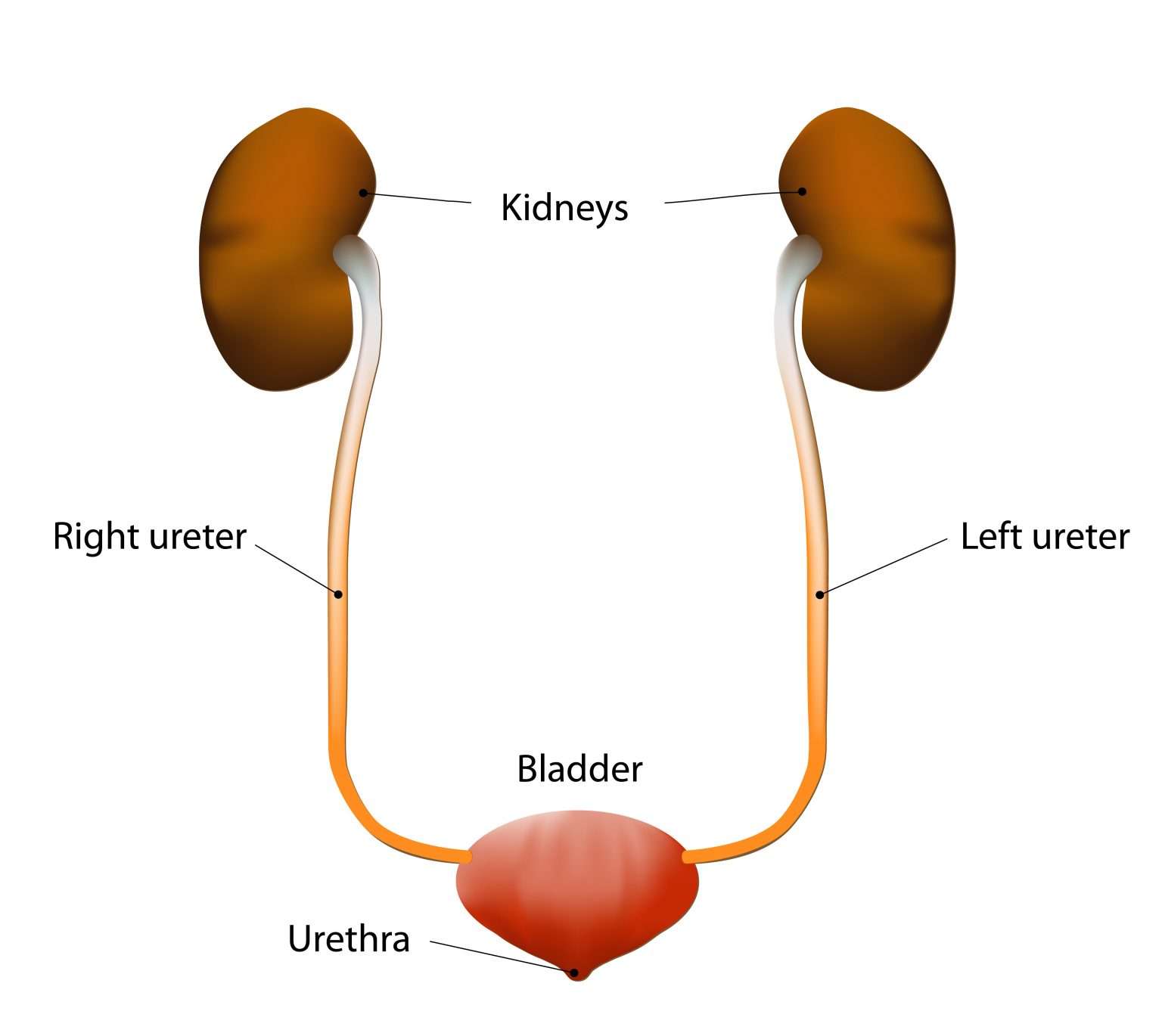Antibiotic Prevention Is Another Option
This means taking a low dose of an antibiotic regularly. One dose each night will usually reduce the number of bouts of cystitis. A six-month course of antibiotics is usually given.
You may still have bouts of cystitis if you take antibiotics regularly but the episodes should be much less often. If a bout does occur, it is usually caused by a germ which is resistant to the antibiotic you are taking regularly. A urine sample is needed to check on which bacterium is causing any bout of cystitis. You may then need a temporary change to a different antibiotic.
Why Do Some Women Have Recurring Cystitis
Your body has defences to prevent germs from causing cystitis. The mucus around your vagina and opening of your urethra is slightly acidic which prevents bacteria from multiplying. Although bacteria may thrive in urine, you empty your bladder regularly which flushes urine out. Also, the cells that line your urethra and bladder have some resistance against bacteria.
In most cases, there is no apparent reason why cystitis returns. There is usually no problem with your bladder or defence system that can be identified. It is possible there may be a slight alteration in the ability of the body to resist bacteria getting into the bladder and causing infection. A slight variation in the body’s defence may tip the balance in favour of bacteria to cause infection.
For some women, one of the following may contribute:
Cystitis Related To Having Sex
Some women find that they are prone to cystitis within a day or so after having sex. This may be partly due to the movements during sex which may push germs up into the bladder. There may also be slight damage to the urine outlet tube . This slight damage encourages bacteria to thrive. This is more likely if the vagina is dry during sex. The normal mucus in and around the vagina may also be upset if spermicides or diaphragm contraceptives are used. The following may reduce the chance of cystitis developing after sex:
- After having sex, go to the toilet to empty your bladder.
- If your vagina is dry, use a lubricating jelly during sex.
- Taking a single dose of antibiotic within two hours after having sex has been proven to reduce the chance of you getting cystitis if you are prone to getting it after sex.
- Do not use spermicides and/or a diaphragm for contraception. See your doctor or practice nurse for advice on other forms of contraception.
You May Like: Essential Oils For Bladder And Kidney Health
Confusion Alone Does Not Signal A Urinary Tract Infection
When an older adult becomes confused, many people both medical and non-medical assume that a UTI is responsible.
But aging increases the incidence of confusion and delirium, especially among those who are cognitively impaired, depressed, malnourished or completely dependent.
Delirium can be caused by various factors, the most common one being dehydration, notes Dr. Lathia.
Bacteria In The Urine Isnt Necessarily A Problem

Elevated urinary bacteria doesnt cause any symptoms and can often be corrected by increasing fluid intake.
The condition occurs in about 6 to 16 percent of women over age 65, 20 percent of women over age 80, and 25 to 50 percent of women living in nursing facilities.
Doctors should not treat urinary bacteria with antibiotics unless there are multiple other signs or symptoms of a UTI. This can encourage antibiotic resistance and make future UTIs harder to treat, says Dr. Lathia.
The presence of antibiotic-resistant bacteria in the urine also increases the risk of serious complications, including C. difficile infection and death.
You May Like: Mesh Bladder Sling Failure Symptoms
How Do You Know If A Uti Has Spread To Your Kidneys2
- Nausea / vomiting
- Fever / chills
Infection of the kidneys can be life threatening. If you are experiencing any of these symptoms and feel that you may have a more serious infection, it is important that you seek help from a medical professional straight away.
But why are UTIs so common? And why do I keep getting them?
Symptoms Of Recurring Utis
Recurrent UTIs, including chronic UTI, can result in the following symptoms:
- An intense, uncontrollable desire to urinate
- Getting a scorching sensation while you urinate
- Frequent urination in tiny amounts
- Cloudy urine
- A vivid pink, red, or brown-colored urine
- Urine with a strong smell
- Pelvic pain, especially in the central parts of the pelvis and about the pubic bone
If the infection spreads up your urinary tract and becomes a kidney infection, it can trigger symptoms such as a high temperature, chills, nausea, vomiting, and pain.
Read Also: How To Fix Bladder Leakage After Pregnancy
How Is A Uti Diagnosed
To find out whether you have a UTI, your doctor or nurse will test a clean sample of your urine. This means you will first wipe your genital area with a special wipe. Then you will collect your urine in midstream in a cup. Your doctor or nurse may then test your urine for bacteria to see whether you have a UTI, which can take a few days.
If you have had a UTI before, your doctor may order more tests to rule out other problems. These tests may include:
- A cystogram. This is a special type of x-ray of your urinary tract. These x-rays can show any problems, including swelling or kidney stones.
- A cystoscopic exam. The cystoscope is a small tube the doctor puts into the urethra to see inside of the urethra and bladder for any problems.
How Many Days Does Urine Infection Take To Cure
if the disease is detected and diagnosed at right time then can be treated easily. Rest, it depends on the location and site of the disease.
- Urethritis is generally cured in 3-5 days
- If the infection reaches to urinary bladder then it takes a bit longer around 7-15 days
- If the infection goes up further to kidneys and causes pyelonephritis. It takes too long to get this cured which can range even months or more.
Also Check: Why Is My Bladder Constantly Leaking
What Causes A Uti
UTIs occur when bacteria get inside the urinary tract, the drainage system that expels liquid waste from the body. Strains of Escherichia coli account for 90 percent of all UTIs, but other bacteria may also cause the infection. E. coli bacteria live inside of the intestines, where theyre harmless. But if they get trapped inside the urinary tract, they trigger an immune response that leads to inflammation. When this occurs, you are likely to experience symptoms of a UTI.
Typically, chronic UTIs affect the lower urinary tract, which includes:
- Bladder: an organ that resembles a triangle located in the pelvis behind the pubic bone. It stores urine produced by the kidneys. The scientific name for a UTI that impacts the bladder is cystitis.
- Urethra: the tube that shuttles urine from the bladder to the outside of the body during urination. A womans urethra is in front of the vagina, while a mans travels through the penis. The scientific name for a UTI that impacts the urethra is urethritis.
Choose The Right Food
With the assistance of your dogs veterinarian, you should select a dog food that matches the canines overall health. This is extremely crucial if your pet has lingering kidney issues.
In general, canines with kidney problems should tone down their protein consumption. This is to reduce the kidneys workload. Still, the diet should remain complete and balanced.
Read Also: What Doctor To See For Bladder Infection
Other Ways To Prevent Recurring Utis
If you have more than 3 UTIs in 1 year, or 2 UTIs in 6 months, there are other things that may help prevent UTIs.
There is some evidence that women under 65 years old who keep getting UTIs may find it helpful to take:
- a supplement called D-mannose this is not recommended for pregnant women
- cranberry products, such as juice or tablets
Speak to your doctor before taking any of these during pregnancy.
Be aware that D-mannose and cranberry products can contain a lot of sugar.
Page last reviewed: 18 November 2020 Next review due: 18 November 2023
Treat Infections As It Occurs

Its important to treat urinary infections the moment your dog shows potential symptoms. This way, your pooch will unlikely experience recurring bouts of infection.
I suggest that you consult the vet for the best treatment for your dogs UTI. Take note that you should never administer antibiotics to your dog without a veterinarians prescription. As with humans, improper ingestion of antibiotics will do more harm than good.
Recommended Reading: Causes Of Repeated Bladder Infections
You Frequently Hold Your Urine
Sometimes, you simply cant urinate when you need to due to your location or your activities. Occasionally holding it is unlikely to cause medical problems, but frequently ignoring the urge to go could put you at risk for UTIs. Remember that urination helps to wash bacteria out of the urinary tract. Urinating less frequently means your body isnt flushing out harmful microbes.
If the urge to urinate happens so frequently that it interferes with your ability to sleep or perform your daily living tasks, talk to your doctor. You may suffer from overactive bladder or another condition that requires treatment. Otherwise, listen to your body, and go to the bathroom when you need to.
Treatment For Bladder Infections
Your doctor will diagnose a bladder infection based on your symptoms, your medical history, a physical examination and a urine test.
If its concluded that you have a bladder infection, your doctor will most likely prescribe you a short-course of antibiotics. Individuals with recurring bladder infections may be prescribed preventative antibiotics that can be taken ahead of time to avoid bladder infections.
Don’t Miss: How To Fight A Bladder Infection Without Antibiotics
Youre A Postmenopausal Woman
After menopause, your risk for developing UTIs increases due to hormonal changes. Also, your immune system naturally slows down as you age, making you even more susceptible to infections. If youre postmenopausal and experiencing frequent UTIs, your doctor may recommend that you apply an estrogen cream to your genital area regularly.
Can A Uti Be A Sign Of Cancer Or Other Problems
Dr. Rx
If you have more than three UTIs in a year, you should be evaluated by a urologist. When infections occur in rapid succession, it can be a sign of an underlying problem with bladder or kidney drainage. Sometimes, when no specific cause is found, a low dose daily preventive antibiotic is used to prevent infection over a period of months. Dr. Mindrup
The vast majority of UTIs are not a sign of a serious disease. Yet when they keep coming back, you should see a doctor. They will rule out other causes such as kidney stones, poor drainage of the kidney or bladder, or tumors, all of which are rare causes of UTI.
In rare instances, recurrent UTIs can lead to a life threatening condition called urosepsis or bladder cancer.
Read Also: Types Of Bladder Cancer Treatments
Utis And Sexually Transmitted Diseases
A number of sexually transmitted infections are known to cause UTIs, including trichomoniasis and chlamydia. Oftentimes a person will assume that the UTI is bacterial in nature and fail to identify the underlying STI.
It is, therefore, vital to consider your risk of STIs when any infection of the genitals or urinary tract is involved. This is especially true if you have multiple sex partners or have gotten a UTI after having sex with a new partner.
Current pediatric guidelines recommend that doctors take a comprehensive sexual history of any adolescent with urinary tract complaints and routinely test them for STIs.
Sexually active men under the age of 35 who don’t use condoms can experience a condition called epididymitis. It is an infection of the epididymis, the coiled tube to the back of the testicles, that can be caused either by bacteria or an STI, most often gonorrhea or chlamydia. Treatment varies based on the cause and severity.
Safer sex practices, which include the consistent use of condoms, are always the best plan for reducing the risk of these and other STIs.
Why Some Women Get Recurrent Utis
The infections are usually caused by Escherichia coli, a bacterium that lives in the intestinal system. If E. coli are carried from the rectum to the vagina, they can enter the urethra and infect the bladder.
Risk factors for UTI vary with age. Before menopause, the most common risk factors are sexual intercourse and use of spermicides. It’s thought that sex increases the number of bacteria in the bladder, and many experts advise women to urinate after sex to flush them out. Spermicides may kill off Lactobacilli, beneficial bacteria in the vagina, making it easier for E. coli to move in.
After menopause, certain physical changes help set the stage for UTIs. The numbers of Lactobacilli in the vagina naturally decline. The bladder also contracts less strongly than it once did, making it more difficult to empty it completely.
In both premenopausal and postmenopausal women, genes play a role as well. Having a mother or sister who has frequent UTIs is also a risk factor.
Recommended Reading: Natural Cure For Bladder Infection
I Keep Getting Urinary Tract Infections After I Have Sex With My Boyfriend Ive Tried Drinking A Lot Of Liquids But That Doesnt Help Is There Anything I Can Do To Stop The Pain
Posted
Urinary tract infections are more common in girls who are sexually active. Thats because the urethra is very close to the anus and bacteria can find their way to the bladder very easily. Girls who have had UTIs before can usually recognize the symptoms of frequent urination, pain especially at the end of peeing, often accompanied by blood in the urine. To try to lessen your chance of UTIs, you may find helpful drinking lots of fluids, peeing at least every two hours and after sex, and talking with your health care provider about cranberry juice or tablets, and whether you should take antibiotics, either to prevent infections or as soon as you get symptoms.
Make sure your symptoms are from a UTI and that you have seen your health care provider. Burning, frequent urination, and pain in the lower belly area, can also be a sign of a sexually transmitted infection such as Chlamydia. If you are sexually active, you should use condoms 100% of the time to lessen your risk.
Recurrent Utis In Kids: What Every Parent Should Know

Another trip to the pediatrician? Another diagnosis of a urinary tract infection ? It seems like every time you turn around, your child has a UTI. If they keep getting recurrent UTIs, it can be frustrating and scary as a parent.
UTIs happen when bacteria from a childs skin or stool get into the urinary tract and multiply. UTIs are also very common. About 8% of girls and 2% of boys will develop a UTI by the time they are 10 years old.
It happens more commonly in girls than boys because the urethra in girls is much shorter, said Brenda Kronborg, DO, a pediatrician with Banner Children’s – Banner Health Clinic. Thus, the bacteria have a shorter distance to go and start the infection.
While UTIs are common among babies and children, recurrent UTIs can have serious complications such as scarring on the kidneys. Its important to know how to spot the warning signs and get help for your child when they need it.
Dr. Kronborg helps break down the signs and symptoms, treatment options and the ways you can help prevent future UTIs.
Also Check: Where Does A Bladder Infection Hurt
What Does A Uti Feel Like
There are two main areas where you can get a UTI, the lower urinary tract and the upper urinary tract. Lower urinary tract infections tend to form in the urethra and/or bladder.
Some of the most common symptoms of UTI are1:
- Urinary urgency: Feeling a constantly strong urge to pee
- Urinary frequency: Needing to pee more often than usual
- Pain or a burning feeling when urinating
- Incontinence
- Blood in the urine / cloudy urine
- Lower stomach / lower back pain
Upper urinary tract infections can happen when an infection spreads from the urethra and/or bladder to the kidneys.
What Conditions Are Related To Recurrent Utis
Recurrent UTIs sometimes happen along with other conditions, such as:
- vesicoureteral reflux , which is found in 30%50% of kids diagnosed with a UTI. In this congenital condition, pee flows backward from the bladder to the ureters. Ureters are thin, tube-like structures that carry pee from the kidney to the bladder. Sometimes the pee backs up to the kidneys. If it’s infected with bacteria, it can lead to pyelonephritis.
- hydronephrosis, which is an enlargement of one or both kidneys due to backup or blockage of urine flow. It’s usually caused by severe VUR or a blocked ureter. Some kids with hydronephrosis might need to take daily low doses of antibiotics to prevent UTIs until the condition producing hydronephrosis gets better or is fixed through surgery.
But not all cases of recurrent UTIs can be traced back to these body structure-related problems. For example, dysfunctional voiding when a child doesn’t relax the muscles properly while peeing is a common cause of UTIs. Not peeing often enough also can also increase a child’s risk for recurrent infections. Both dysfunctional voiding and infrequent urination can be associated with constipation.
Rarely, unrelated conditions that harm the body’s natural defenses, such as diseases of the immune system, also can lead to recurrent UTIs. Use of a nonsterile urinary catheter can introduce bacteria into the urinary tract and also cause an infection.
Also Check: Pumpkin Seed Oil For Bladder Control